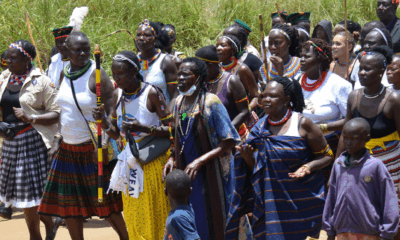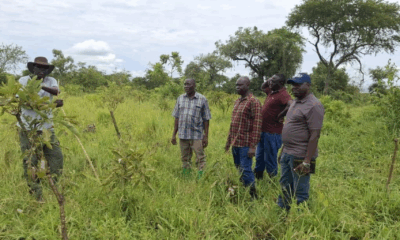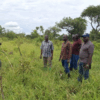News
Youth to adopt Climate Smart Agriculture
During the international conference on Community Based adaptation to Climate Change (CBA11), held last week in Kampala, the youth leaders decried climate variability and land degradation. They presented a new strategy of climate smart agriculture (CSA) and eco-system resilience aimed at attracting many youth to the agricultural sector.
Based on three pillars of: sustainably, increasing agricultural productivity and incomes; adapting and building resilience to climate change; and, reducing and/or removing of green gasses in the environment, in order to enhance achievement of national food security and development goals, CSA identifies and combines the most suitable, sustainable practices and solutions for the local agricultural practices. It combines environmental and social circumstances in crop, livestock production, fisheries and aquaculture and forestry sectors.
The Food and Agricultural Organization (FAO) youth representative, Kennedy Igbokwe, said that CSA will strengthen livelihoods by improving access to services, knowledge and resources. “It is also meant to integrate climate financing with traditional sources of agricultural investment and to curb food shortages using the few natural resources that Uganda is endowed with,” he said.
He said that CSA has patterned the Ministry of Agriculture, Animal Industry and Fisheries (MAAIF), with a national strategy for youth development in agriculture. The deal is designed to engage more youth to increase agricultural production. Under the theme; “Enhancing the Ability of Youth to Build Ecosystem Resilience”, the International Water and Management Institute (IWMI) youth representative, Daphne Nansambu, said that as it is the backbone of Uganda’s economy, agriculture, which engages the biggest percentage of Uganda’s population, needs to the involvement of the many youth.
She said that the current youth population is 77 percent of the youth between 15-24 years of age. A large number of these migrate to town and cities, abandoning agriculture to the elderly.
Instead of getting involved in agriculture, their disinterest makes them to join simple business like; vending, bodaboda, bar-tending, and such like pursuits, she added.
Nansambu said that CSA will help to reduce on the number of migration, believed to be caused by poor climatic conditions that limit agricultural production. Through this, they will be able to provide financial assistance to organized youth groups and provide other incentives to motivate them to join agriculture.
The Makerere University Centre for Climate Change Research and Innovation (MUCCRI), presented major problems pushing many youths away from agriculture. MUCCRI’s Sarah Fortunate informed many youth think that agriculture is “made for elderly”. “Most of the youths want quick money which involves fewer risks which they think agriculture doesn’t offer,” she said.
Contributing to the conversation, a number of youth at the conference said that the things that would attract them to join agriculture would be: agriculture modernization; funding of first yielding agricultural activities like bee-keeping; irrigation, especially in the semi-arid districts; and, carrying out intensive research in all sectors of agricultural production to ensure limited risks. MUCCRI youth also said that with the financial support from the NGOs and Government, many would be attracted to join agriculture since very many are unemployed and need money.
IWMI’s Nansambu said that through this new agriculture adoptive strategy, they are set to diversify agriculture basing on the ideas from the youth presented at the CBA11 because they believe the youth always communicate more to their fellow youths than elders are able to.
Comments























